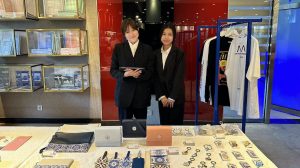Macao lags behind Europe and the United States in accepting women managers, according to a study by the IFT Tourism Research Centre released in November. The survey of 800 workers’ attitudes to women superiors found that on a scale of 1 to 7, where 1 is the most negative and 7 the most positive, the average was 4.79.
“It seems quite positive,” says an IFT researcher into workplace psychology, Dr. Henrique Ngan. “However, if we compare the results with other, similar studies conducted in the United States or in Europe, where the score is usually about 5 to 6, it’s relatively low.”
Dr. Ngan told a briefing for human resources executives in the tourism sector that Macao lagged behind many Western countries in ending bias against women because many workplaces were oriented toward men and attitudes to women managers, shaped by stereotyping, were entrenched.
Dr. Ngan says the IFT study found the most positive attitudes to women managers in the hospitality and entertainment industry, in the meetings and exhibitions industry, and in public administration. These fields required abilities conventionally regarded as feminine, such as caring and attention to detail.
Workers in male-dominated industries have the least positive attitude to women superiors, the IFT study concluded. These types of industries required physically demanding work, such as the utilities, property, and food and beverage businesses.
The workers with the most negative attitudes to women managers tend to be men, older and poorly educated, Dr. Ngan says. “The higher the education, the higher the score. It’s a good sign. It means Macao education is working. It’s creating gender sensitivity,” he says.
“There is work to be done to raise awareness,” Dr. Ngan adds, referring to what the findings of the survey tell us about equality of the sexes in Macao. He suggests Macao businesses to offer staff gender sensitivity training, now that more and more women are becoming managers.
People that stereotype women, Dr. Ngan says, feel more stress when working for a woman manager. Their recalcitrance, shown in deviancy and disobedience, tends to impair company productivity, and women that have to cope with these types of subordinates are more likely to quit managerial positions or leave the company.
The briefing for the tourism industry – attended by about 30 executives – formed part of the Macao Human Resource Monitor Project undertaken by the IFT Tourism Research Centre. Those attending were also given the results of the survey conducted by the centre last year to measure job satisfaction and other matters of relevance to human resources management.
IFT researcher Mr. Patrick Lo says the results of the survey are grim. Mr. Lo says Macao workers are less satisfied with their jobs, feel less fairly paid, suffer more stress and are more willing to change jobs than in 2015, when job satisfaction was at its peak.
Among the workers surveyed, general job satisfaction on a scale of 1 to 5, where 1 is the lowest and 5 the highest, was 3.38 points, on average. The average was the lowest since 2012, when the Macao Human Resource Monitor Project began.
The job stress average was 2.99 points, the highest since 2012. The average of how fair workers perceive their compensation and benefits to be and the average of willingness among workers to stay in their jobs were the lowest since 2012.
IFT Tourism Research Centre Director Dr. Don Dioko links the decline in job satisfaction to Macao’s recent economic pains and to concerns about quality of life and work-life balance.
During the briefing to the tourism industry, Mr. Lo called for employers in gaming and construction to keep an eye on employees in entry-level jobs that require shift work. He says employers should try to nurture a stronger sense of belonging among such employees by giving them training or improving their benefits.
The Macao Human Resource Monitor Project is an endeavour by the IFT Tourism Research Centre, the policy research and industry development arm of the Institute. The project is a long-term effort to gauge attitudes, opinions and job satisfaction among workers in Macao.









